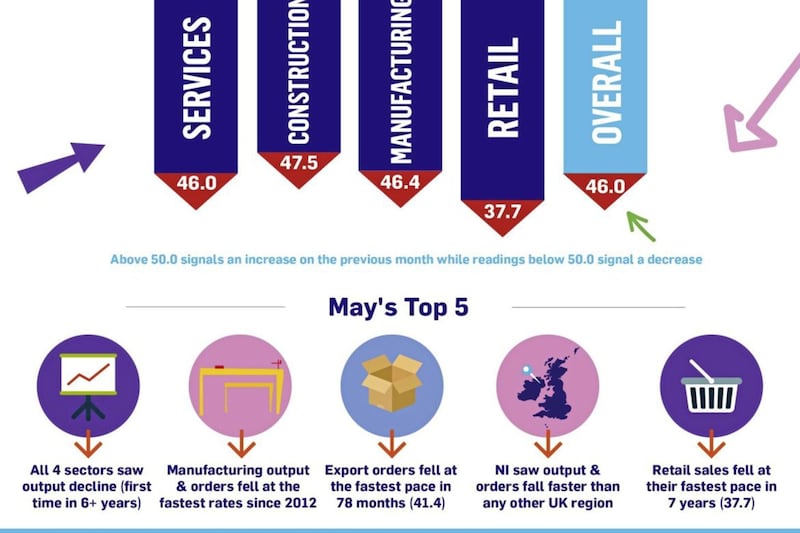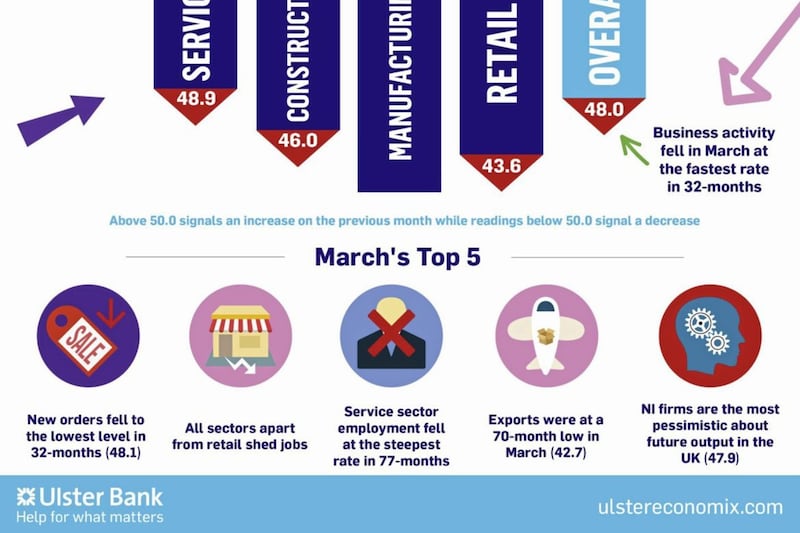THE north's fragile economy remains stuck in first gear?as the four broad sectors of retail, construction, manufacturing and services all fell back in August.
Ulster Bank's closely watched PMI report reveals that new orders fell for the third month running as higher interest rates and the cost of living crisis took a toll on demand.
And while there are some chinks of light within the report - notably that some firms continue to recruit additional staff - the overall picture is one of decline ans malaise.
"Like the weather, private sector performance in most regions took a turn for the worse during August, and Northern Ireland is at the bottom of that list, with the sharpest rates of decline seen across the UK," according to Ulster Bank chief economist Richard Ramsey.
The headline seasonally-adjusted business activity index dropped to 45.7 in August from 48.2 in July, the PMI shows.
That's below the 50.0 no-change mark for the second month running, signalling a drop in output in Northern Ireland's private sector.
The index signalled a marked reduction in activity and one that was the sharpest since January.
Some sectors performed worst than others, with construction for instance showing a fall in orders for the 26th successive month.
By contrast, manufacturing did see a slight improvement in its performance.
Mr Ramsey added: "There were some positive aspects of the Northern Ireland survey, including the UK’s fastest rate of employment growth, and the ongoing normalisation of supply chains, with faster delivery times benefitting local firms.
"In addition, despite ongoing challenges, firms outside of the construction industry are expecting a pick-up in activity in 12 months’ time, meaning that sentiment continues to be relatively healthy.
"But these positives are outweighed by a weakening in demand and a pick-up in inflationary pressures. Business activity in Northern Ireland fell for the second month running, with output recording its fastest rate of decline in seven months and all four sectors posting a decline in August.
"Inflationary pressures had been easing over the past 12 months or so, but faster rates of input cost inflation – which respondents attributed to higher wages - and output price inflation were reported in the latest survey.
"This is still well below the elevated inflation rates seen during the past three years, but is perhaps a warning to businesses that they can’t be complacent about cost pressures."
Away from the private sector, he said the challenges we are seeing in the public sector at a national level, not least the emerging signs of years of underinvestment, were worrying.
"This is also a feature in Northern Ireland, but addressing these challenges is complicated by the ongoing absence of an Executive and the mounting fiscal challenges this is creating," Mr Ramsey said.








